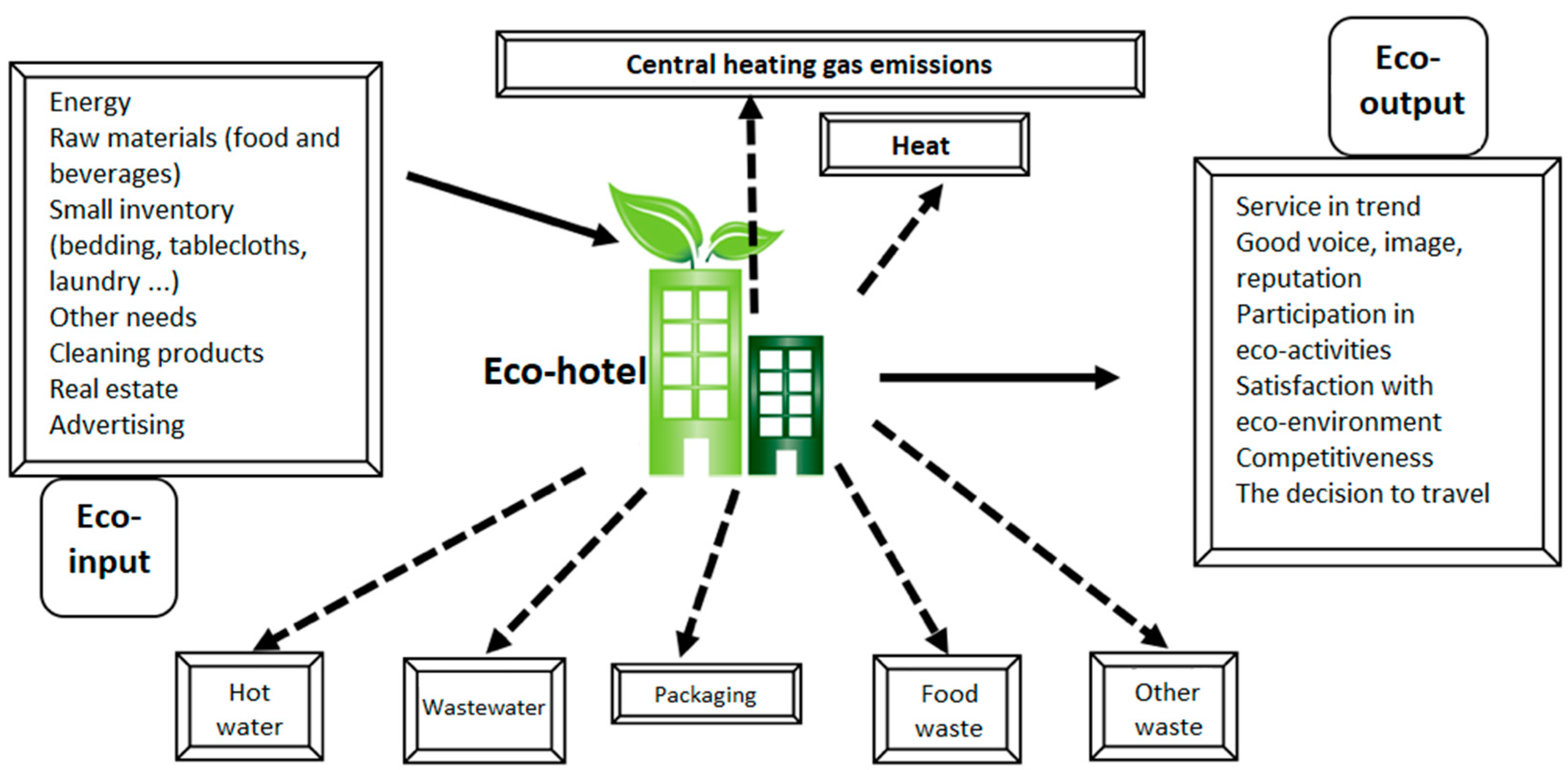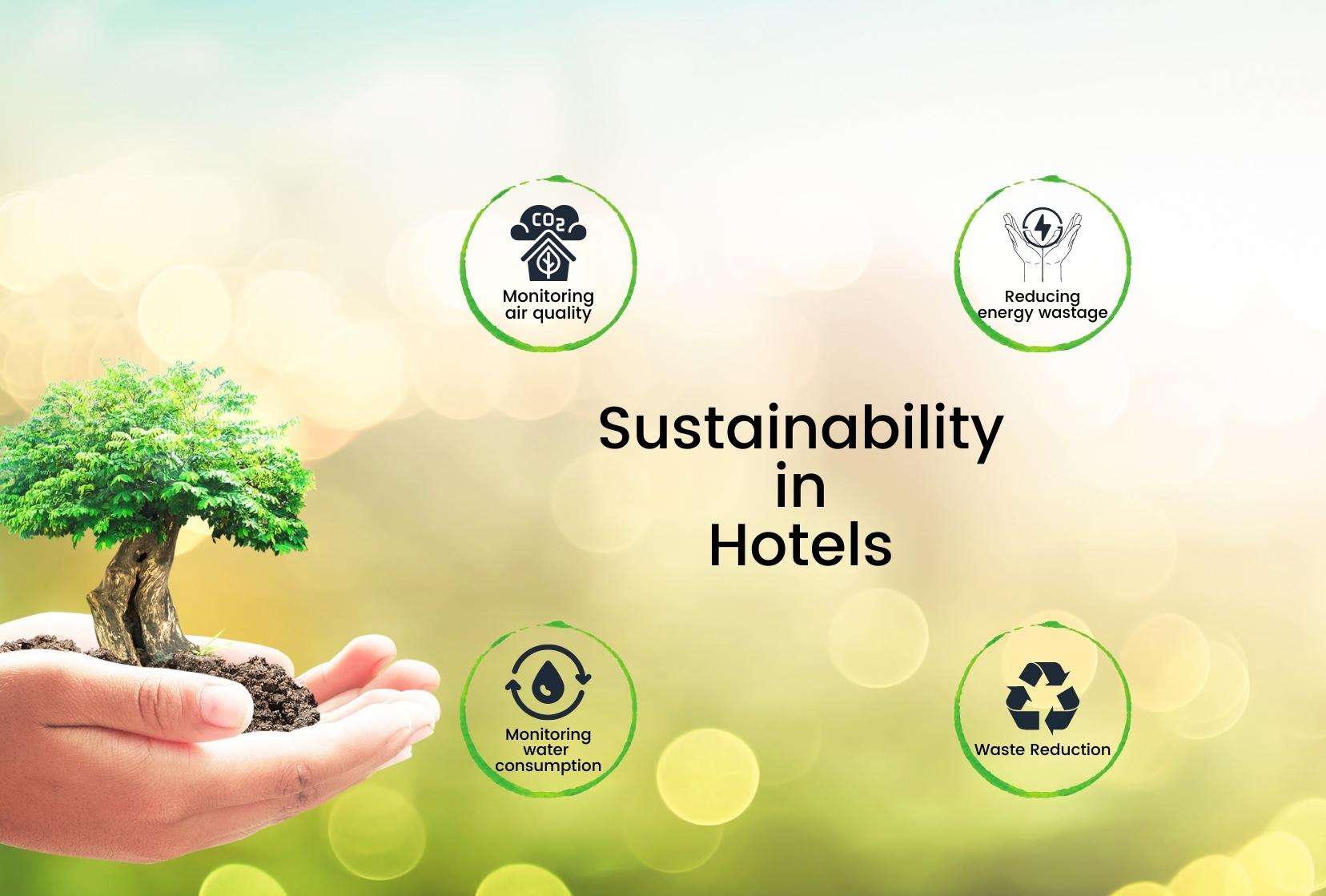As environmental impacts of hotels take center stage, this exploration delves into the intricate interplay between hospitality and sustainability. From water consumption to waste management, we uncover the multifaceted effects of hotel operations on the environment, offering actionable solutions for a greener future.
This comprehensive analysis provides a roadmap for hotels to embrace sustainable practices, reduce their environmental footprint, and contribute to a thriving planet.
Water Consumption and Conservation
Hotels are major consumers of water, accounting for a significant portion of water usage in many urban areas. This high consumption can have a negative impact on local water resources, especially in water-scarce regions.
The average hotel guest uses approximately 150 gallons of water per day, which is significantly higher than the average residential water use. This water is used for a variety of purposes, including showering, bathing, flushing toilets, and washing clothes.
The high water consumption in hotels can have a number of negative impacts on local water resources. These impacts include:
- Depletion of groundwater resources:In many areas, hotels rely on groundwater to meet their water needs. However, excessive groundwater pumping can lead to the depletion of these resources, which can have a negative impact on the environment and local communities.
- Pollution of surface water resources:Hotel wastewater can contain a variety of pollutants, including bacteria, chemicals, and nutrients. These pollutants can contaminate surface water resources, such as rivers and lakes, and can have a negative impact on aquatic life.
- Increased water scarcity:The high water consumption in hotels can contribute to water scarcity in water-scarce regions. This can lead to competition for water resources between hotels and other users, such as residents and businesses.
There are a number of best practices that hotels can implement to reduce their water consumption and conserve water resources. These practices include:
- Installing water-efficient fixtures and appliances:Water-efficient fixtures and appliances can significantly reduce water consumption without sacrificing guest comfort. These fixtures include low-flow showerheads, toilets, and faucets.
- Reusing water:Hotels can reuse water for a variety of purposes, such as irrigation and cleaning. This can help to reduce the amount of water that is drawn from local water resources.
- Educating guests about water conservation:Hotels can educate guests about the importance of water conservation and encourage them to take steps to reduce their water use. This can be done through signage, brochures, and other educational materials.
By implementing these best practices, hotels can reduce their water consumption and conserve water resources. This can help to protect the environment, reduce water scarcity, and save money on water bills.
Energy Consumption and Efficiency
Hotels consume significant amounts of energy, primarily through lighting, heating, cooling, and powering appliances. This energy consumption has a substantial environmental impact, contributing to greenhouse gas emissions and climate change.
The environmental impact of energy consumption in hotels is primarily due to the burning of fossil fuels, which releases greenhouse gases such as carbon dioxide (CO2), methane (CH4), and nitrous oxide (N2O). These gases trap heat in the atmosphere, leading to global warming and climate change.
Best Practices for Energy Efficiency in Hotels
There are several best practices that hotels can adopt to improve their energy efficiency and reduce their environmental impact:
- Lighting:Use energy-efficient LED or CFL bulbs, install occupancy sensors to turn off lights when rooms are unoccupied, and implement daylighting strategies to reduce the need for artificial lighting.
- Heating and Cooling:Install energy-efficient HVAC systems, use programmable thermostats to optimize temperature settings, and implement measures to reduce heat loss, such as insulation and weatherstripping.
- Appliances:Choose energy-efficient appliances, such as ENERGY STAR-rated refrigerators, dishwashers, and laundry machines, and implement measures to reduce energy consumption, such as unplugging appliances when not in use.
- Building Design:Consider energy-efficient building design principles, such as passive solar design, natural ventilation, and green roofs, to reduce energy consumption for heating, cooling, and lighting.
- Staff Training:Educate staff on energy conservation measures and encourage them to adopt energy-efficient practices in their daily operations.
Waste Management

Waste generation in the hospitality industry is a significant concern due to the large volume of waste produced and its potential environmental impact. Hotels generate various types of waste, including food waste, packaging, paper, plastics, and other materials.
The environmental impact of waste is multifaceted. Landfills, where much of the waste ends up, contribute to greenhouse gas emissions, pollute water sources, and damage ecosystems. Incineration, another waste disposal method, releases harmful pollutants into the air.
Best Practices for Waste Management in Hotels
To mitigate the environmental impact of waste, hotels can implement various best practices:
- Waste Reduction:Reduce waste generation at the source by using reusable items, implementing portion control, and promoting responsible consumption.
- Waste Sorting and Recycling:Establish a comprehensive waste sorting and recycling program to divert recyclable materials from landfills.
- Composting:Implement composting programs to convert organic waste, such as food scraps, into a valuable soil amendment.
- Waste Audits:Conduct regular waste audits to identify waste streams and develop targeted waste reduction strategies.
- Supplier Engagement:Collaborate with suppliers to reduce packaging and promote sustainable products.
- Guest Education:Educate guests about the importance of waste reduction and encourage their participation in waste management initiatives.
Greenhouse Gas Emissions

The hospitality industry is a major contributor to greenhouse gas (GHG) emissions, which are the gases that trap heat in the atmosphere and cause climate change. Hotels generate GHGs through their energy consumption, transportation, and waste management practices.
The environmental impact of GHG emissions is significant. They contribute to global warming, which leads to rising sea levels, more extreme weather events, and changes in plant and animal life. GHGs also have a negative impact on human health, causing respiratory problems, cardiovascular disease, and other health issues.
Best Practices for Reducing Greenhouse Gas Emissions in Hotels, Environmental impacts of hotels
There are a number of best practices that hotels can implement to reduce their GHG emissions. These include:
- Improving energy efficiency:Hotels can improve their energy efficiency by installing energy-efficient appliances and lighting, upgrading to more efficient HVAC systems, and implementing energy management programs.
- Switching to renewable energy sources:Hotels can reduce their reliance on fossil fuels by switching to renewable energy sources, such as solar and wind power.
- Reducing transportation emissions:Hotels can reduce their transportation emissions by encouraging guests to use public transportation, walking, or biking, and by implementing employee carpooling programs.
- Improving waste management practices:Hotels can improve their waste management practices by reducing waste generation, recycling and composting, and using sustainable packaging.
Sustainable Building Practices: Environmental Impacts Of Hotels

The adoption of sustainable building practices in the hotel industry is becoming increasingly widespread as the environmental impacts of traditional construction methods become more apparent. Sustainable building practices aim to minimize the environmental footprint of a hotel throughout its lifecycle, from design and construction to operation and maintenance.
Environmental Benefits
Sustainable building practices offer a range of environmental benefits, including:
- Reduced energy consumption and greenhouse gas emissions
- Conservation of water and other natural resources
- Minimization of waste and pollution
- Improved indoor air quality and occupant well-being
Best Practices
There are several best practices that hotels can adopt to implement sustainable building practices:
- Energy Efficiency:Utilizing energy-efficient lighting, appliances, and HVAC systems, and incorporating renewable energy sources such as solar panels.
- Water Conservation:Installing low-flow fixtures, implementing rainwater harvesting systems, and using drought-tolerant landscaping.
- Waste Management:Implementing waste reduction and recycling programs, and composting organic waste.
- Sustainable Materials:Using recycled and renewable materials in construction and furnishings, and prioritizing products with low embodied carbon.
- Indoor Environmental Quality:Ensuring proper ventilation, using low-VOC paints and materials, and providing access to natural light.
Green Certifications and Standards
Green certifications and standards are third-party verification systems that recognize hotels for their environmental performance. These certifications provide a framework for hotels to measure their environmental impact and improve their sustainability practices.Obtaining green certifications can provide numerous benefits for hotels.
These include:
- Reduced operating costs through energy and water conservation
- Improved brand reputation and customer loyalty
- Enhanced employee morale and productivity
- Access to new markets and funding opportunities
To obtain green certifications, hotels can implement a variety of best practices. These include:
- Conducting an environmental audit to identify areas for improvement
- Setting environmental goals and objectives
- Developing and implementing an environmental management system
- Monitoring and measuring environmental performance
- Reporting on environmental progress
Some of the most popular green certifications for hotels include:
- LEED (Leadership in Energy and Environmental Design)
- Green Key Global
- EarthCheck
- Green Globe
- BREEAM (Building Research Establishment Environmental Assessment Method)
Sustainable Tourism

Sustainable tourism practices in hotels aim to minimize environmental impact while enhancing guest experiences. These practices include:
- Utilizing renewable energy sources like solar and wind power
- Implementing water conservation measures like low-flow fixtures and rainwater harvesting
- Reducing waste through recycling, composting, and biodegradable packaging
- Promoting local products and experiences to support the community
- Educating guests about sustainable practices and encouraging their participation
Benefits of Sustainable Tourism for Hotels
Embracing sustainable tourism offers numerous benefits for hotels, including:
- Improved brand reputation and guest loyalty
- Reduced operating costs through resource efficiency
- Enhanced guest satisfaction through a unique and eco-conscious experience
- Increased revenue through the attraction of environmentally conscious travelers
Best Practices for Promoting Sustainable Tourism in Hotels
Hotels can promote sustainable tourism through:
- Establishing a sustainability policy and communicating it to guests
- Implementing energy-efficient lighting and appliances
- Offering eco-friendly amenities like reusable water bottles and biodegradable toiletries
- Providing recycling and composting options for guests
- Training staff on sustainable practices and encouraging guest participation
Community Engagement
Hotels can actively engage with their surrounding communities through various initiatives. Community engagement not only benefits the community but also enhances the hotel’s reputation and guest experience.
Benefits of Community Engagement
- Improved reputation and brand image
- Increased guest satisfaction
- Enhanced employee morale
- Access to local resources and support
- Positive impact on the local economy
Best Practices for Community Engagement
- Identify local needs and priorities
- Partner with local organizations and businesses
- Offer volunteer opportunities for staff and guests
- Support local events and festivals
- Provide educational programs and workshops
- Hire and train local staff
- Purchase goods and services from local vendors
Last Word
In conclusion, the environmental impacts of hotels are undeniable. However, by adopting sustainable practices, embracing innovation, and engaging with communities, the hospitality industry can transform its operations. This shift towards environmental stewardship will not only safeguard our planet but also enhance the guest experience, fostering a legacy of responsible tourism.
Clarifying Questions
What are the primary environmental impacts of hotels?
Hotels contribute to environmental impacts through water consumption, energy usage, waste generation, greenhouse gas emissions, and the use of resources during construction and operation.
How can hotels reduce their water consumption?
Hotels can implement water-saving technologies, such as low-flow fixtures, rainwater harvesting systems, and smart irrigation, to minimize water usage.
What are the benefits of energy efficiency in hotels?
Energy efficiency measures in hotels can reduce operating costs, enhance guest comfort, and contribute to environmental sustainability by lowering greenhouse gas emissions.
